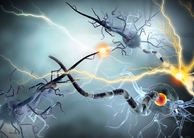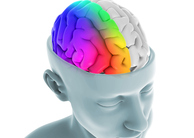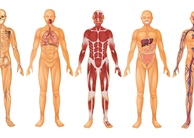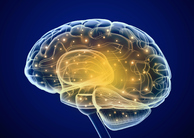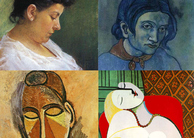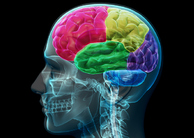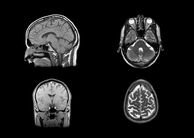|
Science (tagged articles)
The keyword Science is tagged in the following 37 articles.
2022, Vol. 14 No. 02
India was ruled by the Timurid-Mughal dynasty from 1526 to 1857. This period is mainly recognised for its art and architecture. The Timurid-Mughals also promoted knowledge and scholarship. Two of the Mughal emperors, Babur and Jahangir, wrote their... Read Article »
2020, Vol. 12 No. 10
Research has shown that autism spectrum disorder (ASD) shares similar genetic roots with obsessive-compulsive disorder (OCD) and attention deficit hyperactivity disorder (ADHD). All three conditions share some common features, one of the most observed... Read Article »
2019, Vol. 11 No. 11
This paper compiles and analyzes a series of published articles discussing some of the genetic and physiological principles of obsessive-compulsive disorder (OCD), as well as provides insight into potential future investigations for furthering understanding... Read Article »
2017, Vol. 9 No. 12
Since its emergence in the 19th century, fantasy fiction has proliferated throughout the world, from the global craze of Lord of the Rings (1954) to Harry Potter (1997). As a sub-genre of fantasy based on Chinese traditional mythology and martial... Read Article »
2017, Vol. 9 No. 03
In October of 1962, the United States and Soviet Union’s arms race in ballistic missiles escalated to an unnerving confrontation that lasted thirteen days, while both world leaders waited on opposite sides of the world for the other to say... Read Article »
2016, Vol. 8 No. 12
Huntington’s disease is a progressive neurodegenerative disorder that affects around five people in every 100,000. It is caused by an increase in a polyglutamine region of the Huntingtin protein, resulting in a toxic gain of function mutation... Read Article »
2016, Vol. 8 No. 11
J. G. Ballard’s The Crystal World (1966) is a prismatic text, apparently translucent yet linguistically opaque, with moments of unexpected ontological intricacy. Like the crystals consuming the forest, Ballard’s descriptive language... Read Article »
2016, Vol. 8 No. 10
An orthodox opinion within neurolinguistics is left hemispheric lateralization for language processing. The left hemisphere of the brain is dominant for processing language, logic, critical thinking and reasoning (Gootjes et al. 1999; Hickok, Love... Read Article »
2016, Vol. 8 No. 07
In this paper, I review the course of brain development during childhood and adolescence and examine how early adverse experiences affect structural changes in the neural correlates of higher-order cognitive abilities. I also discuss the therapeutic... Read Article »
2016, Vol. 8 No. 06
CRISPR gene-modifying technology continues to revolutionize fields involving biological research. Rapid advancements, however, have sparked a vibrant bioethical debate scene. This research focuses on the effective usage of CRISPR metaphors in... Read Article »
2015, Vol. 7 No. 10
While some believe that scientists should communicate their research apolitically in research journals, others believe that scientists should communicate to the media in order to bring awareness to their research topic. As a compromise to these... Read Article »
2015, Vol. 7 No. 03
In a previous article I wrote about fine-tuning in the Universe and the empirical evidence for a Grand Designer that can be found within our reality. This argument of course occurs within the context of ongoing fiery debate between theists and secular... Read Article »
2015, Vol. 11 No. 1
Neurofeedback Therapy (NFT) is a type of biofeedback therapy specifically targeting the brain and nervous system. According to the Mayo Clinic, biofeedback is defined as a technique one can use to learn to control the body’s functions, done... Read Article »
2015, Vol. 11 No. 1
The early 20th century saw the rise of a unique subgenre of Science fiction and horror literature known as weird fiction. H.P Lovecraft, one of its more prolific and lasting contributors, is rightly considered one of the fathers of the genre. Like... Read Article »
2014, Vol. 6 No. 08
We often acquire knowledge about the world through the detailed process of description. We understand even more by describing and explaining to others—people often report that they only really understand a topic once they have described it... Read Article »
2007, Vol. 2 No. 1
The peripheral nervous system is made up of the nerves and neurons that are outside of the central nervous system. These nerves and neurons are used to transport information between the brain and the rest of the body, and when damaged, can severely... Read Article »
2012, Vol. 4 No. 08
One of the numerous working definitions of religion includes "a belief in a divine or superhuman power or powers to be worshipped," and "an expression of such a belief in conduct and ritual" (Johnson, 2012 p. 1). Rituals are generally a religion... Read Article »
2012, Vol. 4 No. 08
Experiments involving human subjects are increasingly utilized in criminal justice research. However, these studies present relatively unaddressed ethical concerns. This article examines the dark history of human experimentation on offenders and... Read Article »
2012, Vol. 4 No. 05
A stroke is defined by the Stroke Association as a ‘brain attack’, where part of the brain is deprived of oxygen. It is also known as a ‘cerebrovascular accident’ (CVA). There are two types of strokes: ischaemic and haemorrhagic... Read Article »
2012, Vol. 4 No. 04
According to recent estimates, over nine percent of the United States population has some degree of depression—a proportion that makes depression one of the most common and serious mental conditions in the country (“An Estimated 1 in... Read Article »
2012, Vol. 4 No. 03
Due to their different subject matter, the way in which social and natural Science inquiries are conducted differs. For some, this difference is constituted in a greater reliance upon values in the social Sciences than in the natural. This essay... Read Article »
2012, Vol. 4 No. 01
English literature is all-encompassing: it ranges from societal utilitarianism of the didactic through to the celebration of individualism embodied in post-modern work. Literature, as part of a larger cultural body, is both instructive and entertaining... Read Article »
2011, Vol. 3 No. 11
Dollhouse received mixed critical reviews and a fairly low number of viewers, but it is reasonable to argue that there has never been anything quite comparable to it before. Dollhouse combined elements of dystopian Science fiction, fast paced action... Read Article »
2011, Vol. 3 No. 05
During most of the 16th and 17th centuries, fear of heretics spreading teachings and opinions that contradicted the Bible dominated the Catholic Church. They persecuted scientists who formed theories the Church deemed heretical and forbade people... Read Article »
2011, Vol. 3 No. 03
When investigating the effect of gaze direction on facial expressions of emotion, previous imaging research indicated that dynamic presentation of stimuli produced higher amygdala responses (Sato, Kochiyama, Uono, & Yoshikawa, 2010). A behavioral... Read Article »
2011, Vol. 3 No. 01
Throughout Émile Durkheim’s Social Facts, he provides an account of what he deems to be the correct nature of social facts. This essay explores his account in order to assess its relation to both methodological holism and methodological... Read Article »
2010, Vol. 2 No. 12
"The 'logically ordered' society results in a loss of spirit and soul, with the absence of suffering, of twilight and mystery, of emotions and meaning. … If this ordering principle were a figure, …it would be some Clockwork Orange... Read Article »
2010, Vol. 2 No. 10
The advent of digital computers and contemporary neuro Science has fundamentally changed possible approaches to artificial intelligence (AI). Mankind’s perpetually evolving technological capacity inevitably leads to faster processors, more... Read Article »
2010, Vol. 2 No. 09
In his article “Brain Bisection and the Unity of Consciousness,” Thomas Nagel suggests that the ordinary conception of a unified mind is misled. To support his claim, he turns to data concerning patients whose corpus callosum has been... Read Article »
2010, Vol. 2 No. 09
The limitlessly varied personalities of human beings have fascinated both scientists and fellow members of society throughout the existence of humankind. Of particular interest has been what happens when man’s mind turns against him, and what... Read Article »
2010, Vol. 2 No. 03
The discovery of adult neurogenesis (the endogenous production of new neurons) in the mammalian brain more than 40 years ago (Malcolm R. Alison, 2002) has resulted in a wealth of knowledge of this branch of neuro Science. Today we know that the continuous... Read Article »
2010, Vol. 2 No. 03
Every passing decade, the culture of human beings as a whole has been significantly affected by technology and Science. Whether it’s something small, like the invention of automatic doors, or something enormously important, like the invention... Read Article »
2010, Vol. 2 No. 03
In recent years, it has become clear through scientific investigation and public opinion that the current state of environmental degradation and ongoing damage are a practice that cannot be carried into future generations if mankind wishes to maintain... Read Article »
2010, Vol. 2 No. 01
Or, they can contact Weather Modification Incorporated in Fargo, North Dakota and order some “enhanced precipitation” or “hail damage mitigation.” It sounds like Science fiction, but in many places around the world, scientists... Read Article »
2009, Vol. 1 No. 12
Art Nouveau is the so-called “modern style” developed at the turn of the 19th century. Although it is dated roughly between 1890 and 1910, its first true recognition as an important new movement in art and design occurred at the Universal... Read Article »
2009, Vol. 1 No. 11
I like Kurt Vonnegut because he’s innovative and unique, his literary voice speaking out of a time period I love, when he “was actually helping to breathe life into a new genre—modern, pop fiction,”[1] according to critic... Read Article »
2009, Vol. 1 No. 11
What is a cyclical history? Why does humanity seem doomed to repeat the same mistakes over and over again? Are we doomed to this machine called fate? What is a soul, and how do I express it? Predicting what futures may lay ahead for humanity if... Read Article »
Expedited Article Review
Submit an article and get a decision fast.
If you need a fast decision, INQUIRIES Journal offers expedited processing of your submission for a small fee. Depending on the expedited review option you choose, you can receive a decision in as few as 5-days.
In addition to a shorter review period, the fee supports the journal's continued operation and open-access publishing model. Standard submissions are always free. Submit Now » - Submit an Article to Inquiries Journal -
|
















